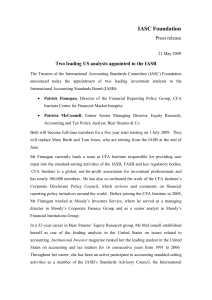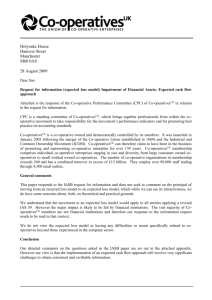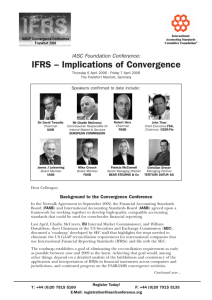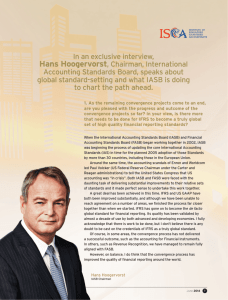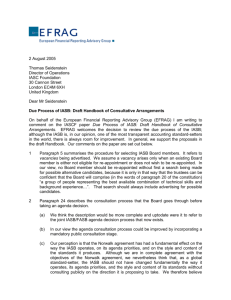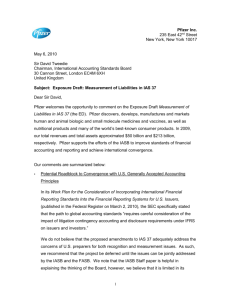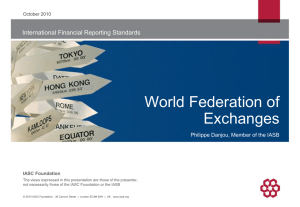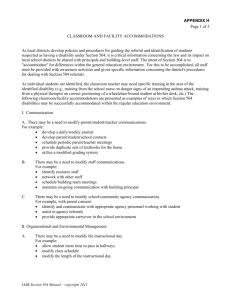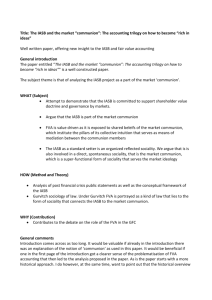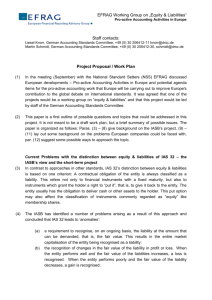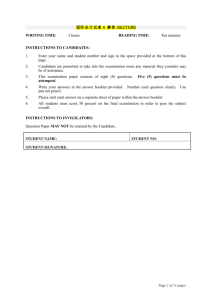Due Process of IASB
advertisement
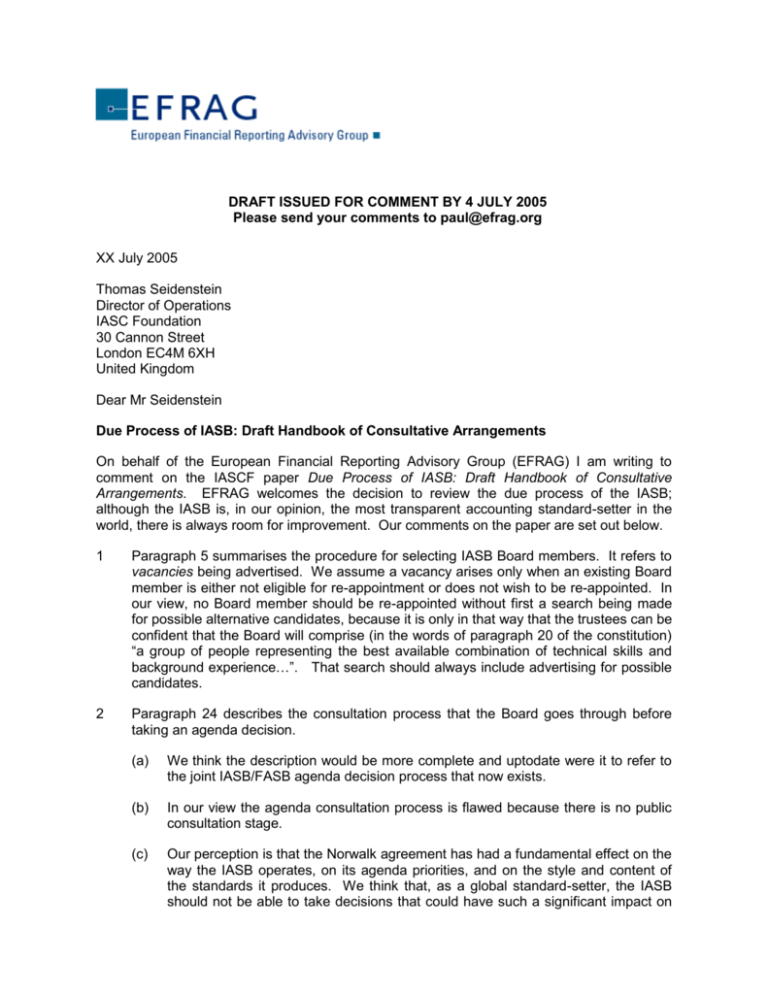
DRAFT ISSUED FOR COMMENT BY 4 JULY 2005 Please send your comments to paul@efrag.org XX July 2005 Thomas Seidenstein Director of Operations IASC Foundation 30 Cannon Street London EC4M 6XH United Kingdom Dear Mr Seidenstein Due Process of IASB: Draft Handbook of Consultative Arrangements On behalf of the European Financial Reporting Advisory Group (EFRAG) I am writing to comment on the IASCF paper Due Process of IASB: Draft Handbook of Consultative Arrangements. EFRAG welcomes the decision to review the due process of the IASB; although the IASB is, in our opinion, the most transparent accounting standard-setter in the world, there is always room for improvement. Our comments on the paper are set out below. 1 Paragraph 5 summarises the procedure for selecting IASB Board members. It refers to vacancies being advertised. We assume a vacancy arises only when an existing Board member is either not eligible for re-appointment or does not wish to be re-appointed. In our view, no Board member should be re-appointed without first a search being made for possible alternative candidates, because it is only in that way that the trustees can be confident that the Board will comprise (in the words of paragraph 20 of the constitution) “a group of people representing the best available combination of technical skills and background experience…”. That search should always include advertising for possible candidates. 2 Paragraph 24 describes the consultation process that the Board goes through before taking an agenda decision. (a) We think the description would be more complete and uptodate were it to refer to the joint IASB/FASB agenda decision process that now exists. (b) In our view the agenda consultation process is flawed because there is no public consultation stage. (c) Our perception is that the Norwalk agreement has had a fundamental effect on the way the IASB operates, on its agenda priorities, and on the style and content of the standards it produces. We think that, as a global standard-setter, the IASB should not be able to take decisions that could have such a significant impact on the financial reporting framework in Europe (and in many other countries around the world) without consulting publicly on the direction it is proposing to take. We therefore believe the IASB should be obliged to consult publicly in future before entering into such agreements. We also do not think it is too late to carry out a useful public consultation on the Norwalk agreement and the working practices developed in the light of that agreement. 3 Paragraph 42 explains that the normal comment period for a consultative document is 90 days, although for major projects a longer period will normally be allowed. In our opinion: (a) the normal comment period for a discussion paper should be 120 days; (b) there ought to be more 120 day comment periods in the future than there have been in the past, so that the consultation process is less hurried and there is more time for mature reflection. Conceivably, the normal comment period for all consultative documents should be 120 days. 4 The paper does not refer to ‘lead times’—in other words, the period between the date of publication of an IFRS and its effective date. Allowing sufficient time for entities to prepare for the implementation of a new or revised standard is in our opinion an essential part of the due process. The length of lead times is even more important for areas like Europe that have an endorsement process. The IASB’s procedures should formally recognise that endorsement processes exist and that an appropriate amount of time needs to be allowed in the IASB’s implementation timetable for those endorsement processes to be completed. 5 Paragraphs 60 and 61 explain the process followed when a request is received from a constituent for an item to be added to the IASB’s agenda. We wonder whether for such requests it might be worth adopting a process similar to that now being adopted by the IFRIC to help ensure transparency of agenda decisions. (In other words, the reason for rejecting a request should be exposed in draft form for a month or so and then published on a database.) 6 We also have a few very minor wording suggestions, which we have set out in the appendix to this letter. We hope that you find the above comments helpful. If you wish to discuss them further, please do not hesitate to contact Paul Ebling or myself. Yours sincerely Stig Enevoldsen EFRAG, Chairman Appendix: EFRAG’s minor wording suggestions, made in response to the IASCF’s Due Process of IASB: Draft Handbook of Consultative Arrangements a The second sentence of paragraph 84 implies that only the chairmen of the partner standard-setters attend the IASB’s meetings with the partner standard-setters. That is not the case because other representatives of the standard-setters usually attend, and indeed sometimes the chairman is not present. It might be preferable to refer to “the chairman and or other representatives”. b The paper uses three different terms—‘working groups’, ‘advisory groups’, and ‘steering committees’—to describe the same thing. c The first bullet point of paragraph 109 should probably refer to the SAC.
